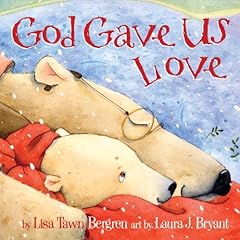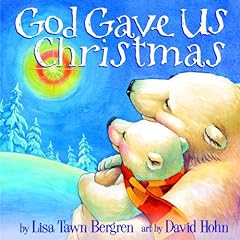
Jenny is a delight and a gal that I seriously wish lived around the corner rather than across the country. I LOVED her women's fiction title Just Between You and Me, and she's agreed to stop by to answer some questions. And be sure to read to the end for a very gracious offer from Jenny!
Jenny, anyone who has read my blog knows that I inhaled and adored your recent book Just Between You and Me. While that was an adult novel – and snort out loud funny — most of your books are young adult. What’s the biggest difference between adult and young adult fiction? And be honest — which is your favorite to write? ( You know I had to put you on the spot :-) )Aw, thanks for the book compliment, Cara. So glad that you enjoyed
Just Between You and Me. And I love hearing that it induces snort laughs. Those are the very best kind. Writing
Just Between You and Me was a little intimidating (and when I say little, I really mean a lot). It was my first book that wasn’t YA, and I felt a tad bit out of my comfort zone. But when I really got into the book, I realized that writing a romance about a 30 year old and writing one about a 16 year old are very similar. Life is still more complex than it needs to be. God is still the key to it all. And boys are still confusing.
I think the main difference is that at 30 we’re supposed to
act like we know what we’re doing. At 16 there’s a little more grace allowed to be clueless. But at 16 there’s more zits and a curfew, so it’s a tradeoff.
Both are fun to write (you knew I’d say that) and have their perks. I love the freedom of writing YA. A teen can and will say anything, so that is fun and liberating. While we have to be a little more controlled and “polite” as adults. But I like the complexity of relationships in writing “big girl” books. I like that you can take the romance further as well. But both are a lot of fun.
You have an incredibly funny style in your writing. Is it effortless — a natural extension of you — or is it something you have to work hard at pulling into your books?Wow, thank you.
That’s a hard one to answer. Close friends and co-workers who read my books tells me that it takes a while to get my voice out of their head as they read. So apparently the books tend to sound like me. That’s not necessarily a good thing. ; )
I think the humor is both an extension of me and hard work. The humor element in the books is one of the most important things, whether it should be or not. I’ve become convicted in the last few years that humor is a ministry, so it’s vital that there are plenty of laughs in the pages. It comes from a combination of letting it flow and trying really hard. Ha. And the book is never as funny as I’d like it to be. I think it’s like all elements of a book—at some point you have to realize it’s not going to be perfect and let it go.
 Tell us about the So Charmed series. I love the covers — talk about funny! -- what gave you the idea for Bella? And could you not think of a better way to put her completely out of her element? There are animals on the covers!
Tell us about the So Charmed series. I love the covers — talk about funny! -- what gave you the idea for Bella? And could you not think of a better way to put her completely out of her element? There are animals on the covers!A Charmed Life series is about Bella Kirkwood, a sixteen year old Manhattan socialite. She has everything—her rich father’s credit cards, Broadway in her backyard, and a permanent spot as queen of popularity at her elite private school. Then her parents split, Mom finds a new man online, and at her remarriage, Bella is moved to the tiny town of Truman, Oklahoma. Things go from bad to worse, and Bella finds herself on the very bottom of the social food chain in her new high school. She gets stuck on the school newspaper, where she clashes with the cute editor Luke, but also stumbles upon mysteries in Truman High that she must get to the bottom of.
I got the idea for Bella after seeing my ninth grade students (I’m a teacher by day) and kids even younger reading the
Gossip Girl books. And these books were a little disturbing to me. I’m not the most conservative reader, but when I’m reading about teen girls throwing up their lunch like it’s just part of the culture (versus it being a plot point to teach what NOT to do), I got disturbed. Yet these books were everywhere at school. The kids loved them. So I thought wouldn’t it be funny to take a
Gossip Girl type of character (the PG rated variety) and throw her into a small, rural town. I love contrasts and putting people in the environment they are least likely to be in. About that same time one of my favorite shows—
Veronica Mars—went off the air, and I was bereft. I love reading/watching amateur sleuths. And this show had it all—humor, sarcasm, romance, and mystery. So I decided to make Bella a Nancy Drew as well. Besides, she needed something to do to replace all that shopping that wasn’t happening.
I’ve learned that with each book, God teaches me something as I write it. What did you learn as you wrote this story and what do you hope readers learn afresh as they read it?Learning something with every book--isn’t that the truth? With A Charmed Life series, it was about God pushing me out of my comfort zone and writing something I knew nothing about—mysteries. I think I had read two in my entire life. And aside from watching some
Murder She Wrote in the 80s and some
Veronica Mars, I had no experience with mysteries. So that was a huge challenge. And struggle.
With the big girl book
Just Between You and Me, God really spoke to me about being fearless. The theme of the book is about living beyond our fears, something I’m no expert on. So I just saturated my days with scripture on trusting God and being bold and fearless. My prayers were wrapped around this theme as I wrote. I have never depended on God more for a book, never felt the weight of communicating a spiritual message more. And the whole time, God was not only speaking to me as a writer, but also to me personally. Every book has a spiritual theme, but they always seem to be just what I need myself at that time.
What is your favorite part of writing? The great people you meet? The time staring at a computer screen? And how do you fuel your all night writing frenzies?I love staring at a computer screen for hours! Especially when at the end of these hours there’s STILL nothing on said screen. Well, nothing except Facebook. And Twitter. And YouTube. I think the best part of writing is connecting with readers and hearing their feedback. I love to hear how a book made them laugh or led them to hear from God. That’s the best. I also love the friends I’ve made in the biz. It’s hard being a writer (somebody should’ve told me this before), and it’s so great to get support from people who understand. And want to help. And I love just being involved in the ministry of fiction. God can use anything and anyone to spread the message of Christ, the message of hope. Even a story about a spoiled sixteen year old girl who finds herself doing temp work in a maxi-pad factory. Yes, even there, the Lord is present. ; )
What do your students think about the fact that you write books? Are you a rockstar on campus? :-)I’ve got to work on this rockstar thing. I’m probably a little too good at separating school from writing. When I’m at school I’m Ms. Jones the Teacher. (Actually I’m Ms. Jones Your Favorite Teacher and Don’t You Ever Forget It.)
And when I’m at home writing, I leave school behind. And rarely do the two intersect. I give books and bookmarks to English teachers to with every new release, so the kids are definitely exposed to the books. But because I rarely talk about my books in class, they don’t always connect me with the books. A few months ago, I asked all my kids to suggest a great book to read. One of them said, “
In Between. It’s good.” This was the first book I wrote. After class, after she had learned I was the author of the book, the student came up to me and shook her head. “I can’t believe I just told the author of
In Between to read her own book.” And walked away. So I could probably be a bit more forthcoming with details about the book writing. At the end of last school year, I had a book come out, so they got their bookmarks from their English teachers and they heard a book talk or two. Then a dozen or more came up to me on the last few days of school and said, “You were our teacher this whole time, you wrote these books, and I didn’t even know.” Oops. I think I’m paranoid about those kids leaving my class at the end of the semester and feeling like I tried to sell them anything. I don’t ever want them to feel like I pushed the books. That’s not my job there, you know? But I could probably push a bit more, but mostly I let other people do that. So thanks to our awesome junior high and high schools in our district, the kids get exposed to the books. . .but often don’t realize the author is just down the hall.
Finally, if you could go anywhere in the world right now, where would you go and who would you take.
Oh, love to travel. It’s one of my favorite things. I think I’d probably go to South Carolina and Georgia if I could right now. I’m writing a book set in Charleston (tentatively), and I have never been. I’d really like to go check it out. I have it penciled in for this summer, but it’s a little late. I’m considering making a quick trip over Christmas break, but I don’t know that time-wise it’s going to work out.
Aside from that, I think I’d like to go somewhere warm. With a beach. I’m a few months away from turning in a book and getting that familiar “Omigosh I have a book due and things are not where they need to be and I need some peace and quiet and Jimmy Buffet music” anxiety. I think just some quiet time away from work, the house, and my mentally challenged cat would do me and the book a lot of good.
I am so up for joining you on the trip to Charleston! Thanks for stopping by, Jenny!
Thanks so much for letting me stop by, Cara. I’m a card carrying member of the Cara Putman fan club, so it’s so cool to hang out with you and your blog. And I can’t wait to see all 400 of your new releases on the shelves this year.
See why I like her, folks. And Jenny has offered to giveaway a copy of I'm So Sure. So leave a comment telling us why this sassy YA novel is something you'd like to read or give to a teen in your life.









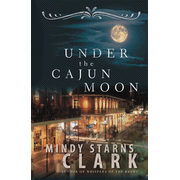 In
In 





 Tell us about the So Charmed series. I love the covers — talk about funny! -- what gave you the idea for Bella? And could you not think of a better way to put her completely out of her element? There are animals on the covers!
Tell us about the So Charmed series. I love the covers — talk about funny! -- what gave you the idea for Bella? And could you not think of a better way to put her completely out of her element? There are animals on the covers!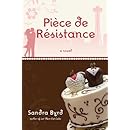
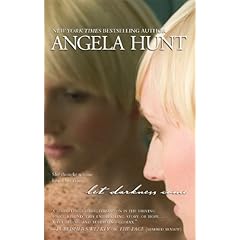





 ks for allowing me to spend some time with you and your readers. This is my favorite time of year, especially the days between Thanksgiving and Christmas. Of course in Florida, the weather doesn't help much. Even in December on any given day we can be found wearing shorts and flip-flops. Cindi and I make up for it by an overflow of Christmas decorations and residual memories of snowy Christmases as children when we lived up north.
ks for allowing me to spend some time with you and your readers. This is my favorite time of year, especially the days between Thanksgiving and Christmas. Of course in Florida, the weather doesn't help much. Even in December on any given day we can be found wearing shorts and flip-flops. Cindi and I make up for it by an overflow of Christmas decorations and residual memories of snowy Christmases as children when we lived up north.